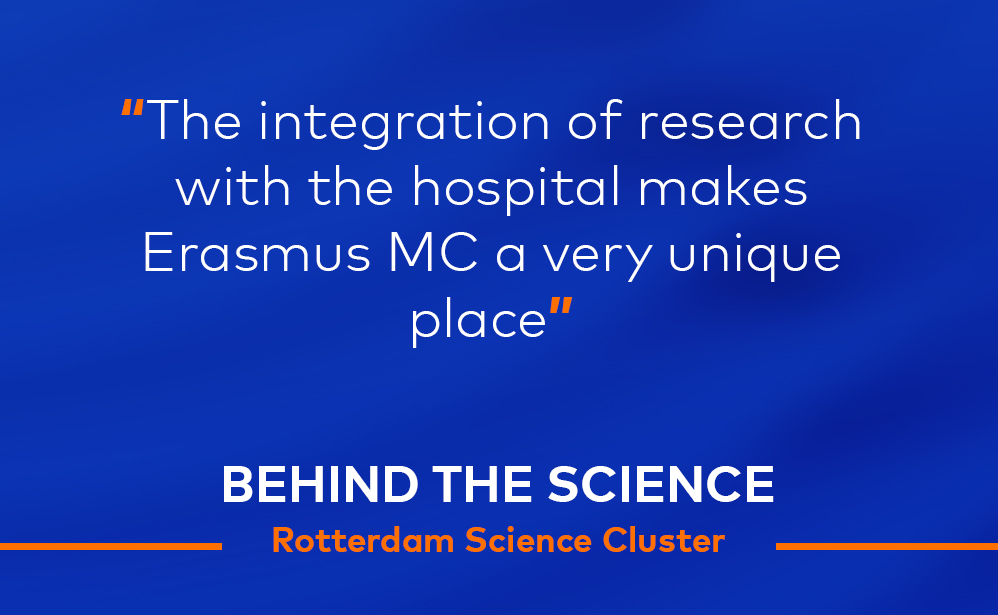“The integration of research with the hospital makes Erasmus MC a very unique place”
In the shadow of Rotterdam’s impressive skyline, a world of medical innovation and scientific progress unfolds. From genetics to clinical research, Rotterdam is not only a city with striking buildings, but a breeding ground for groundbreaking discoveries and innovative solutions in the field of Bioinformatics.
It is the collaboration between companies, research and knowledge institutions, and the government that makes Rotterdam a breeding ground for the many medical innovations that are developed here and find their way to patients worldwide.
Professor Peter van der Spek knows firsthand the importance of collaboration in advancing medical research. Since 2004, he has served as a full professor at Erasmus University Medical Center, where he focuses on big data applications to support new innovative technologies for complex medical care.
Van der Spek leads an immunological research program that provides the biological and technological foundation for the bioinformatics group. It focuses on how the immune system and the genome as a whole contribute to the evolution, development, structure, and function of vital organs and defense mechanisms in our body that are relevant to both health and disease.
“It is the integration of research with the hospital that makes Erasmus a very unique place in Northern Europe,” he says. “It is one of the largest hospitals, and we actually have many different disciplines where we conduct research in collaboration with clinicians in their specific divisions. I always tell my students that my week looks like this: on Monday I do cancer research, on Tuesday cardiology, Wednesday neurology, Thursday immunology, and Friday I support pediatrics.”
It is precisely this interaction between different research areas, disciplines, and health areas that leads to interesting observations. Van der Spek gives the example of the fascinating intersection between cancer and cardiology.
“One of the interesting observations is that there are many connections between people with cancer, but some genes also affect the cardiovascular system, leading to heart failure in these patients. This affects both the oncological and cardiological fields. The impact of this is life-saving, because it means we can target treatment to specific groups of patients. That’s why we also work with companies that monitor cells, analyze deep cells, and build a microscope that uses AI to sort these cells.”
Professor Van der Spek dives more into this topic in our conversation with him at Erasmus MC. Watch the full interview with Van der Spek in ‘Behind The Science’ here.
The Rotterdam Science Tower is one of the landmark buildings in Rotterdam filled with innovation and entrepreneurship. Get in touch with Teun to find out more.

